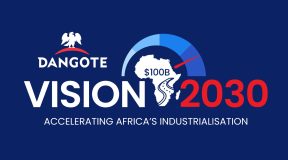President of the Trade Union Congress (TUC) Festus Osifo said labour and the Federal Government were in talks before the bill on a new national minimum wage was forwarded to the National Assembly by President Bola Tinubu.
Osifo confirmed that labour has had meetings with the Minister of State for Labour and Employment, Secretary to the Government of the Federation and other government officials to ensure that the new minimum wage would “cater to the needs of the poorest of the poor.”
He spoke at the Petroleum and Natural Gas Senior Staff Association of Nigeria (PENGASSAN) Women Commission maiden Annual Convention in Abuja on Tuesday with the theme: “The Dynamic Woman: Navigating Challenges in a Constantly Evolving World.”
Talks on a new national minimum wage has stalled following the decision of President Tinubu to consult with stakeholders before send the bill to the NASS.
While the Federal Government and Organised Private Sector (OPS) agreed on N62, 000 as the new minimum wage, labour insisted on N250, 000.
Osifo said some level of “internal work” was ongoing before the bill would be submitted in “earnest.”
He stated: “The minimum wage negotiations cannot be dead. The 2019 minimum wage (that has expired) took about two years to see the light of day. We started the negotiations in 2017.
“We promised you when we started in January (this year) that we will ensure this one is fast – tracked for us not to be in the conundrum that we were in 2019 which took two years.
“So where we are today, we submitted the divergent position in June, when we did that you know clearly that Mr President came out to say that he wanted to consult across board which is the governors, local government chairmen, organised private sector and labour, so we are doing some level of reachout and conversations.
“So that what will be submitted to the National Assembly will actually be a minimum wage that will cater for the poorest of the poor, so for the fact that in the media we are not shouting, we are doing some level of internal work so that this bill will be submitted in earnest soon.
Osifo also said the country would continue to experience fuel scarcity until some logistics problems are addressed.
He said: “About a week ago, if you are driving between Aviele and Auchi you will realise that some people sleep on that road for days, the road is completely cut off, so if you are bringing fuel from Port Harcourt and coming to Abuja, you need to pass through that road depending on where you are bringing the products from.
“The roads as of today are very bad, if you check different part of the world, how many countries are using tankers to supply premium motor spirit (PMS) or AGO, it is not done. Naturally, what is done is the use of pipelines and in some cases they use rails and if you go to some western world, you see rails that are having over 2,000 tanks, railway lines whether it is rainy or dry season, it is okay.
“So until we imbibe technology and fix our pipelines and oil depots because that is also key, if the depots that we have in the nooks and crannies of Nigeria are all working we could have had reserve stocks in these depots, so that when our roads are bad, we can use those depots that are closer to the cities for supplies, then when the roads are good, you can restock them and go back to business as usual.
“We must be able to deepen the facilities of the oil and gas logistics because if we don’t do that, perennially we would have these challenges. Last year we had the whole of Lokoja cut off, so for tanks coming from Lagos, Calabar, Abeokuta, Port Harcourt where are they going to pass, it will be difficult so we must be able to sit down and define our distribution value chain in the oil and gas sector.”
National Chairperson of PENGASSAN Women Commission, Comrade Ada Mbanaso said the commission had positively impacting the lives of many women and children in various communities.
“Initiatives such as ‘Back-to-School’ projects, donations to orphanages and old people’s homes, empowerment of widows and small-scale business owners, celebration of boy/girl child on children’s day, skills acquisition programs for women in rural areas, and menstrual hygiene/mental health campaign, exemplify the commission’s commitment to social responsibility and community development,” she said.
Mbanaso said the PENGASSAN women commission was committed to championing the advancement of women within PENGASSAN and beyond.
“We are passionate about expanding our advocacy efforts, promoting gender equity, empowering more women to take up leadership roles, fostering a supportive environment for professional development, and addressing emerging challenges faced by women in our industry,” Mbanaso said.


